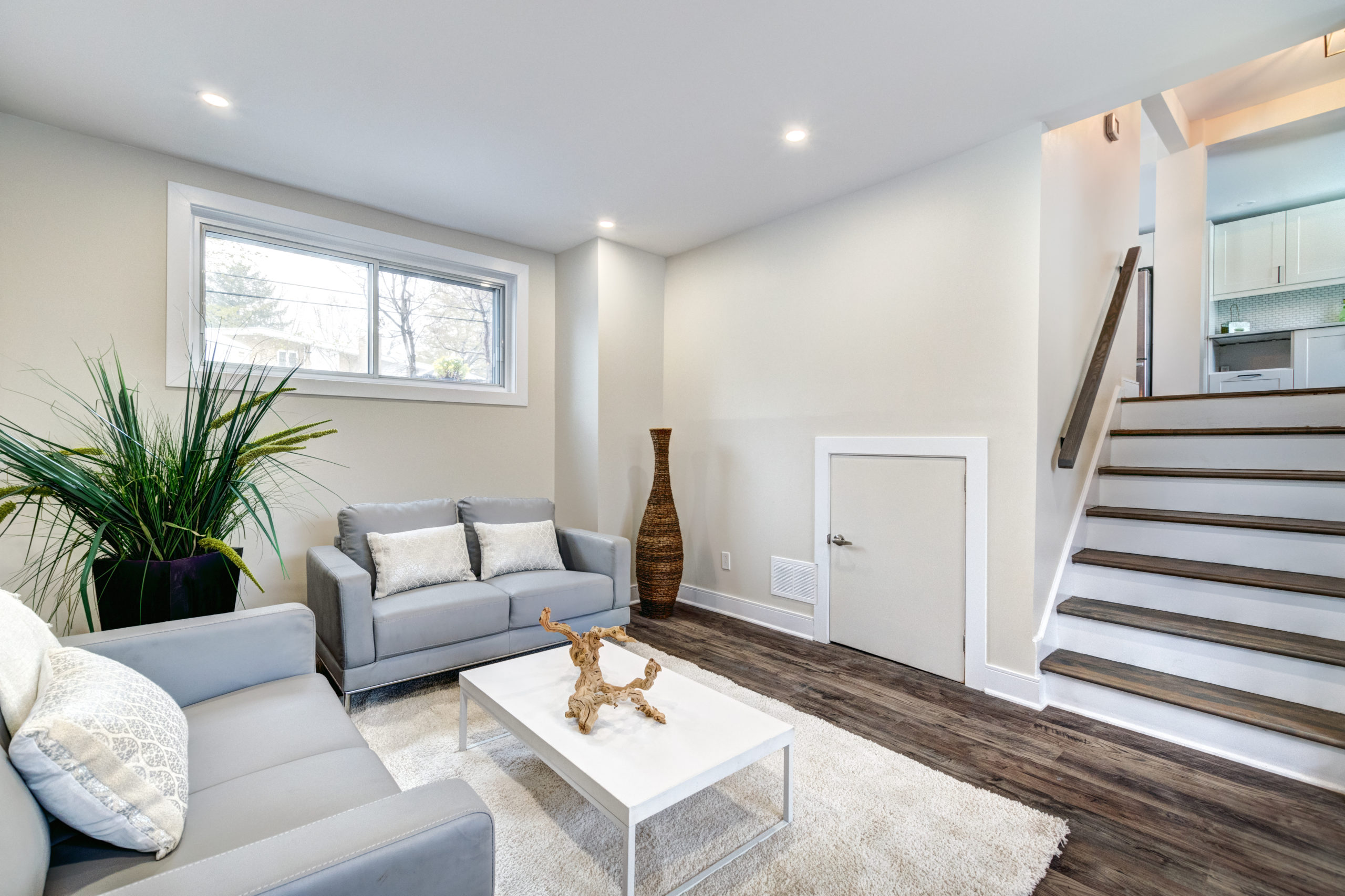Adding more living space to your home can be as simple as converting your basement or garage into an apartment or office. The job is even easier if the garage or basement is already climate controlled. Hardwood flooring can go a long way towards making it feel like an actual room of your house. However, you should be careful about adding hardwood floor to a basement apartment. Basements, especially ones that are partially underground, are susceptible to wild fluctuations in humidity and temperature. They’re also more likely to flood. That flooding can come from storms or even from plumbing issues. Whatever the case may be, you need to pick the hardwood that is most likely to resist damage from moisture and temperature. That hardwood is engineered hardwood.
Why Engineered Hardwood?
Engineered hardwood flooring is made by pressing several layers of wood together. Typically, the wood has a firm base layer that provides rigidity to the plank. Then, it incorporates several thin layers of a less expensive hardwood. It could even be a softwood. The wood is typically stacked with perpendicular grains to increase the strength. The top layer is a veneer of the hardwood that you actually want to see. For example, a red oak engineered plank might have several layers of thin white oak with a top layer of red oak.
Engineered hardwood will be more resistant to cupping than solid hardwood. Cupping occurs when the planks absorb moisture over time and then dry out. The edges tend to curl upwards while the center does not; that’s why it’s called cupping. This can result in an uneven floor. Sanding is the most effective way to remedy the cupping, but if that’s done before the floor is completely dry, it can cause the center to then bow upwards. Also, stripping and sanding your entire floor is expensive, messy, and time-consuming. It’s best to just avoid cupping in the first place.
The layers of wood, glue, and the alternating directions of the grain will help engineered hardwood resist cupping.
Floating Floors
Lastly, engineered hardwood is preferable for basement and garage installation because the floors of those spaces are often concrete. When the floor is concrete, you can’t nail down solid hardwood planks. The planks will need to be attached to one another and glued to the floor. This is called a floating floor. Engineered hardwood is much more effective as a floating floor.
Updating Your Basement? Call Colorado Hardwood Floors!
Our team are experts at helping you decide the best flooring option for your project. From basements to living rooms and offices, let Colorado Hardwood Floors help you make this one of the easiest projects ever!

